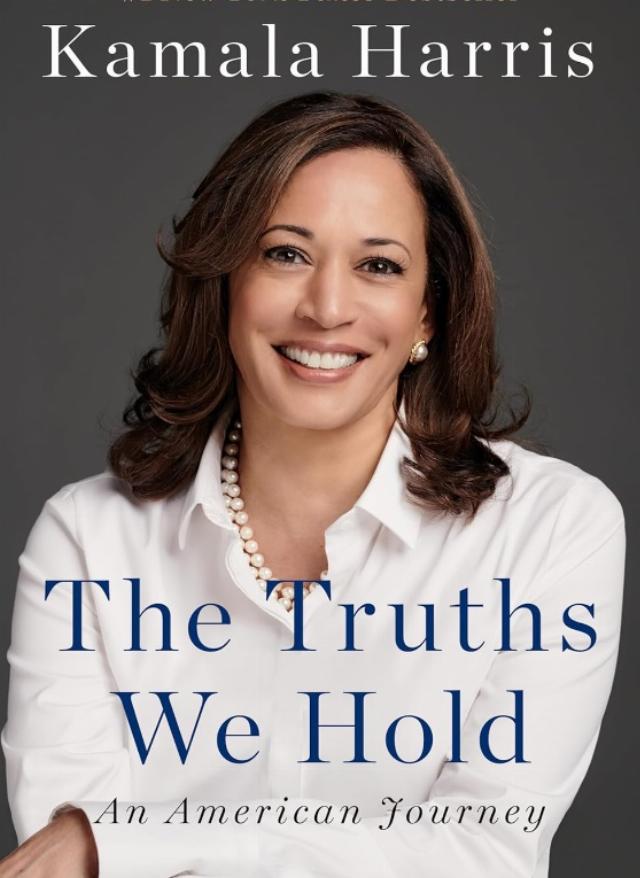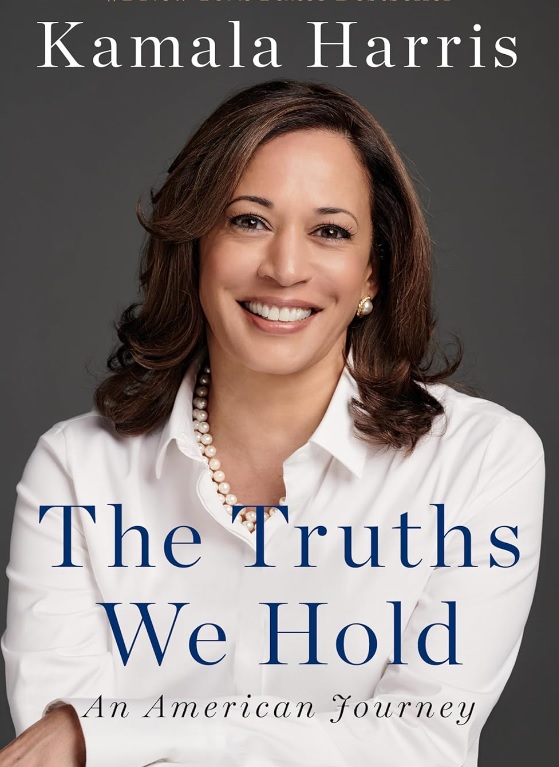
I recently read Kamala Harris’s book The Truths We Hold: An American Journey and the accompanying workbook Reflective Exercise Book (Keypoints) for Kamala Harris’s The Truths We Hold: Reflection Exercises for Proper Understanding and Knowledge Mastery.
The workbook is a complete and utter scam. Harris should put on her prosecutor hat and go after any proceeds from it unless her pronouns are, in fact, he/him/his. Beyond that, The Truths We Hold is a campaign book written for the 2020 election cycle. The public is familiar with many of the stories in it as Harris has repeated them, almost word for word, often. As a daughter of two immigrants, she grew up in a middle-class family in Oakland, California. They had nice lawns.
What I was expecting was a book with three to five binding truths that we, as Americans, all share. In fact, I would still like to read that book if it’s out there somewhere, by any author, by any title, if anyone is aware of one.
It’s likely that the writing of Kamala’s book got pretty tricky, pretty fast as no actual truths are identified as such in it. One possible reason for this is because, while as a lifelong member of the middle class, I can speak at length on values of the middle class, for example-delayed gratification — this does not translate into an overarching value that all Americans share. I can speak about the truths that I hold, what I learned about equity for example, growing up in the midwestern United States, which boils down to this Dadism: “Fair? Fare is what you need to get on the bus!” Kamala’s American Journey was different than mine possibly because of socioeconomic, or cultural differences. Which is as it should be. Diversity of experience and of thought are essential for growth and development.
<img alt captext="Penguin Books” class=”post-image-right” src=”https://conservativenewsbriefing.com/wp-content/uploads/2024/09/the-truths-we-hold.jpg” width=”450″>Since reading Harris’s book I have asked my family, friends, and people I meet what the response was when they complained, as a child that something wasn’t fair. My favorite response was from a Jamaican woman who vividly remembered complaining when her siblings opened all her birthday gifts before she was able to. Her grandmother told her, “Life isn’t fair but we try to let what isn’t fair teach us.” Another Jamaican responded with, “Cuz the Doctor say da Good Lord don’ luv on us all da same.” Some people remembered that the situation was so egregious that their parents dealt with the situation on their behalf. Far and away the most common response was that life isn’t fair and that the sooner one accepts that the better off one will be. Or, as I often told my own children, “You get what you get, and you don’t throw a fit.”
Kamala describes her mother’s instruction regarding perceived unfairness in her book and I recently received a similar answer when I asked the question online-that we strive for equity and when we see inequity, we fight to change the systems or policies that make it that way. My first thought was that perhaps this was owing to a generational difference but Kamala is just a few years younger than I am and furthermore I inculcated my understanding of fairness into my now adult children (next generation) because that is all I ever knew. Most likely, the difference in views is due to being exposed to different ideas, experiences and communities.
Harris writes that the “promise made at the signing of the Declaration of Independence is that no government has the right to “rob us of our life, or our liberty, or our humble pursuit of happiness.” What she neglects to mention is that promises, whether made by individuals or by governments can be and often are broken.
The Declaration of Independence states, “We hold these truths to be self-evident, that all men are created equal, that they are endowed by their Creator with certain unalienable Rights, that among these are Life, Liberty and the pursuit of Happiness.” This is no promise made by men that can be broken it is, in fact, the truth whether or not all of us hold it to be true or not. The reality is that these rights are inherent and unalienable meaning that they cannot be ceded by the individual to any other individual, collective, authority, or government. The government does not have the Ability to transfer them either forcibly or voluntarily. The Promise of the Declaration is that our Government will secure, guard and defend these rights and, upon failing to do so, that the people have the right, duty, and responsibility to form a new one.
Image: Penguin Books




